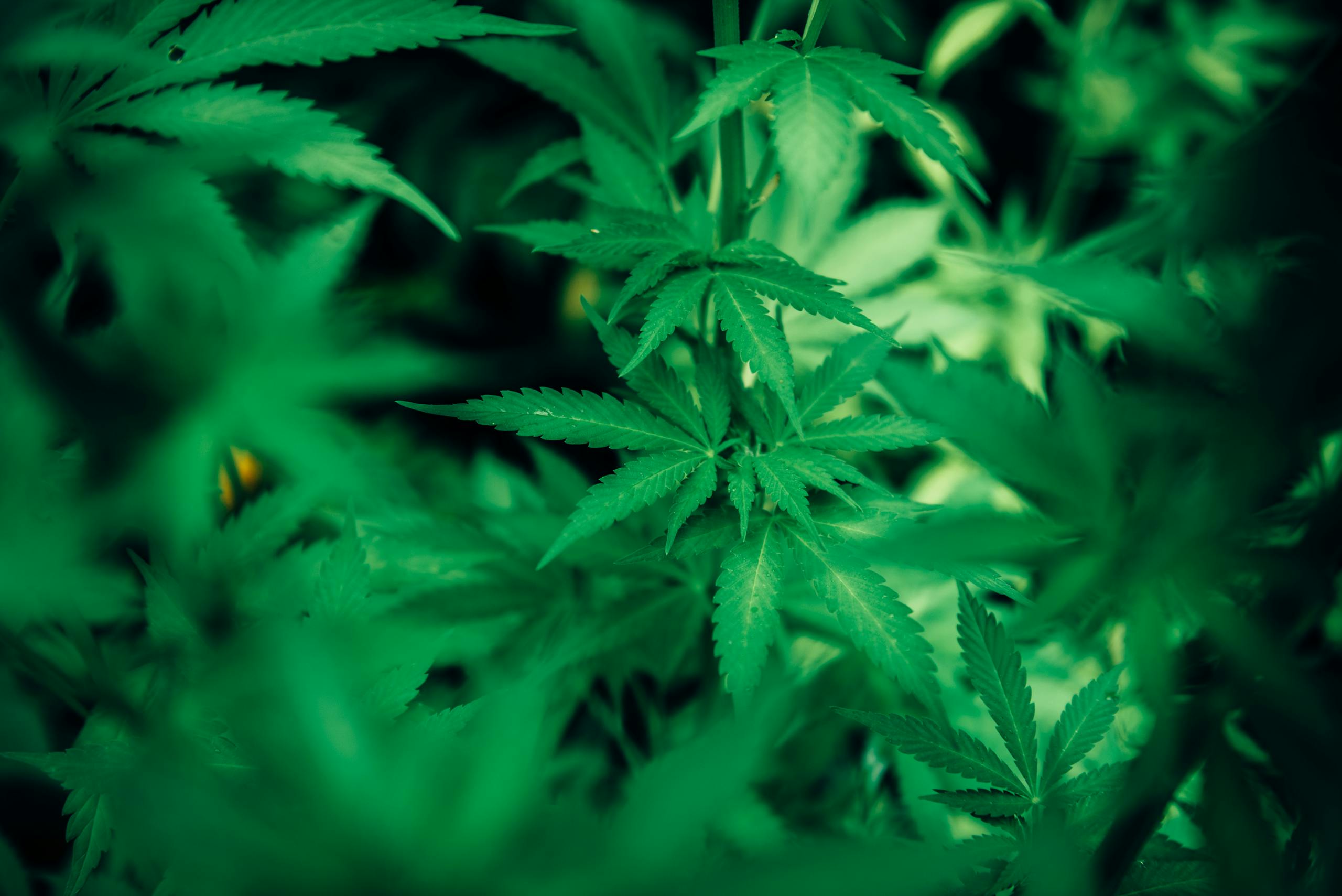Cannabis Use Linked to Nearly Fourfold Higher Risk of Diabetes

A new large-scale analysis of medical records has drawn global attention after revealing a strong association between cannabis use and a significantly higher likelihood of developing type 2 diabetes.
According to this research, people who use cannabis face a nearly fourfold increased risk compared to non-users, even after controlling for other health and lifestyle factors. The study, presented at the Annual Meeting of the European Association for the Study of Diabetes (EASD) 2025 in Vienna, adds fresh evidence to a conversation that has often been filled with assumptions, speculation, and conflicting data.
Let’s dive into the specifics of this study, what it might mean for public health, and what questions still remain unanswered.
The Scope of the Study
The research was carried out by Dr. Ibrahim Kamel and his team at Boston Medical Center in the USA. They analyzed data from the TriNetX Research Network, which includes health records from 54 healthcare institutions across the United States and Europe.
- Sample Size: The dataset covered a massive 4,257,793 adults between the ages of 18 and 50.
- Cannabis Users Group: This included 96,795 individuals with cannabis-related diagnoses. These diagnoses covered a range of categories — from occasional use, dependence, and intoxication to withdrawal.
- Control Group: The comparison group consisted of 4,160,998 individuals with no history of substance use or major chronic disease at baseline.
- Time Frame: Records were drawn from 2010 to 2018, and individuals were tracked over a five-year follow-up period.
By design, the study sought to reduce bias through propensity score matching, ensuring that cannabis users and non-users were similar in terms of age, sex, and baseline health conditions.
The Findings
The outcome was striking:
- Diabetes Cases in Cannabis Users: Out of the cannabis group, 1,937 individuals (2.2%) developed diabetes over five years.
- Diabetes Cases in Non-Users: In the control group, 518 individuals (0.6%) developed diabetes.
- Risk Comparison: After statistical analysis and adjusting for factors such as cholesterol levels (HDL and LDL), uncontrolled high blood pressure, existing cardiovascular disease, and the use of alcohol or cocaine, the risk of developing diabetes among cannabis users remained nearly four times higher than non-users.
This means that even when accounting for many known risk factors, cannabis use itself still stood out as a significant variable linked to increased diabetes risk.
Why Might Cannabis Affect Diabetes Risk?
The study did not prove direct causation, but it raised important questions about biological mechanisms. Researchers suggested several possibilities:
- Insulin Resistance: Cannabis may overstimulate the body’s endocannabinoid system, especially the CB1 receptor, which has been linked to fat accumulation (including liver and visceral fat). These changes could drive insulin resistance, a key factor in type 2 diabetes.
- Dietary Behavior: Many people are familiar with the “munchies” — cannabis-induced appetite increases that may lead to poor dietary choices and overeating, which in turn can worsen metabolic health.
- Other Lifestyle Influences: Reduced physical activity, concurrent alcohol or nicotine use, and irregular eating habits could also contribute to higher diabetes risk among cannabis users.
While these are logical theories, none have yet been conclusively proven. The authors emphasized that further research is needed to understand the exact pathways.
Limitations of the Study
Like all large observational studies, this research comes with caveats:
- Causation Not Proven: The study shows an association, not a direct cause-and-effect relationship. It cannot definitively state that cannabis use alone causes diabetes.
- Exposure Details Missing: The dataset did not include information on the frequency, quantity, or potency of cannabis used. Nor did it differentiate between methods such as smoking, vaping, or consuming edibles.
- Potential Reporting Errors: Cannabis use was identified through medical records. This introduces the possibility of underreporting or misclassification, especially in regions where cannabis remains illegal and stigmatized.
- Residual Confounding: Even though many risk factors were controlled for, there may still be unmeasured variables such as socioeconomic status, overall diet, or exercise habits that influenced outcomes.
- Age Restriction: The study population was limited to adults aged 18 to 50, meaning the findings may not apply to older populations or those with pre-existing conditions.
Despite these limitations, the scale of the dataset and the persistence of the association after adjustments make the findings difficult to ignore.
Public Health Implications
The study carries important implications for healthcare providers, policymakers, and the general public:
- Medical Counseling: Healthcare professionals may need to routinely ask patients about cannabis use when evaluating diabetes risk and provide appropriate metabolic monitoring.
- Public Awareness: As cannabis continues to become more widely available and legalized across various regions, public health campaigns may need to include warnings about its potential metabolic risks.
- Integration into Treatment Programs: For individuals in substance use treatment, counseling may need to emphasize not only mental health outcomes but also physical health risks like diabetes.
The lead researcher stressed the importance of integrating diabetes awareness into conversations about cannabis use, particularly as it gains social acceptance.
What This Means for Everyday Users
The numbers reveal a significant relative risk increase (nearly 4x). However, the absolute risk difference over five years was from 0.6% to 2.2%. That’s still relatively low in absolute terms, but it is enough to matter at the population level.
For individuals, the risk may vary depending on factors like:
- How often cannabis is used
- Type and potency of cannabis
- Overall lifestyle choices (diet, physical activity, smoking, alcohol use, etc.)
This suggests that while occasional or light cannabis use might carry less risk, heavier or chronic use could be more problematic — especially for people already at risk of metabolic issues.
Cannabis Use Around the World
To put this into context, cannabis remains the most widely used illicit substance globally. According to the United Nations Office on Drugs and Crime, around 219 million people, or 4.3% of the global adult population, reported cannabis use in 2021.
With legalization spreading across North America, Europe, and beyond, cannabis use is expected to continue rising, making studies like this critical for public health planning.
Cannabis and Metabolism: A Complex Picture
Interestingly, past research has sometimes suggested contradictory effects of cannabis on metabolism:
- Some earlier studies hinted that cannabis might have anti-inflammatory properties or even support weight management.
- Other studies raised concerns about cannabis impairing glucose regulation or contributing to insulin resistance.
The new findings tilt the balance toward concern, but they also highlight the complexity of cannabis’ impact on human biology.
What’s Next in Research?
There are several unanswered questions that researchers hope to address in future studies:
- Dose-Response Relationship: Does the risk of diabetes rise with higher frequency or heavier cannabis use?
- Consumption Methods: Do edibles, smoking, or vaping carry different levels of risk?
- Demographic Differences: Are certain age groups, genders, or ethnicities more vulnerable?
- Mechanistic Studies: How exactly does cannabis interact with insulin, glucose, and fat metabolism?
- Prevention Strategies: Could maintaining a healthy lifestyle offset cannabis-related diabetes risk?
Answering these questions will be key for providing clearer guidance to both the medical community and the general public.
Conclusion
This new study represents one of the largest real-world analyses ever conducted on cannabis and diabetes risk. Its finding of a nearly fourfold increase in risk underscores the importance of taking cannabis’ metabolic effects seriously, especially as legalization continues to expand.
While the study doesn’t prove causation, it highlights the urgent need for more detailed, long-term research. For now, individuals who use cannabis — particularly heavily — may want to consider their overall metabolic health and consult healthcare providers for monitoring.
As with many aspects of cannabis research, this is not the final word but an important step in building a more accurate understanding of how the world’s most widely used illicit substance impacts long-term health.
Research Reference: Cannabis use linked to increased risk of type 2 diabetes – European Association for the Study of Diabetes (EASD) 2025





